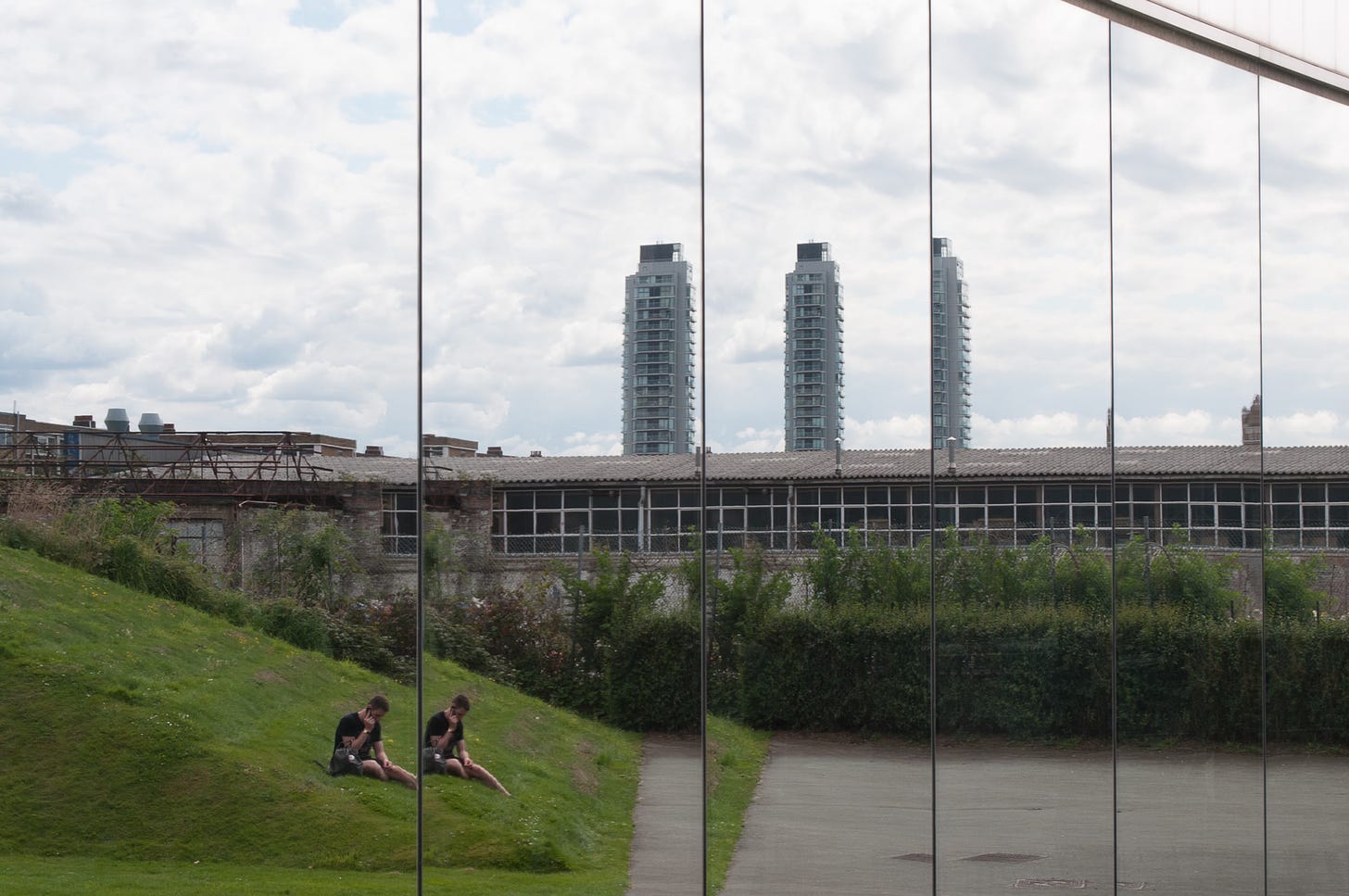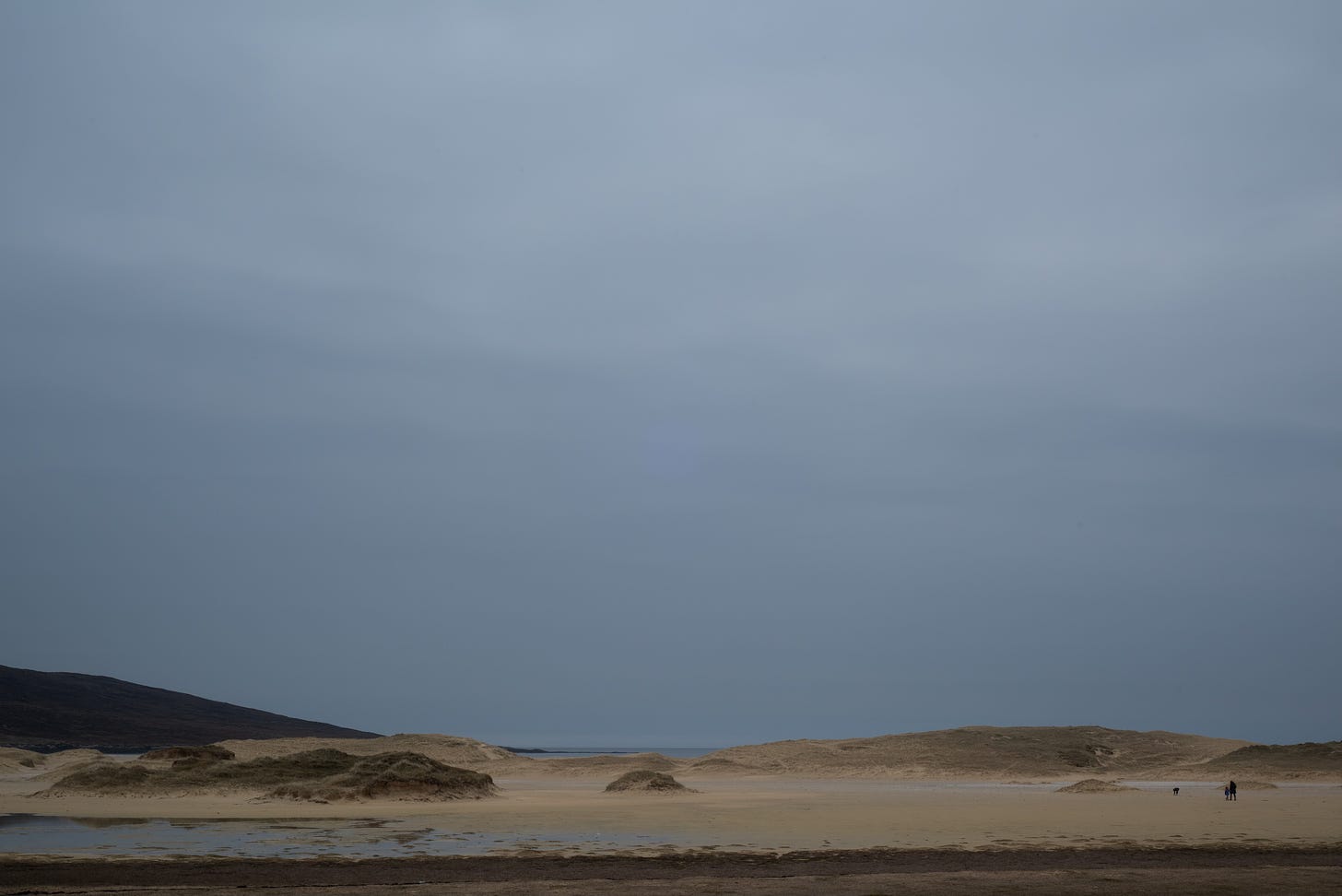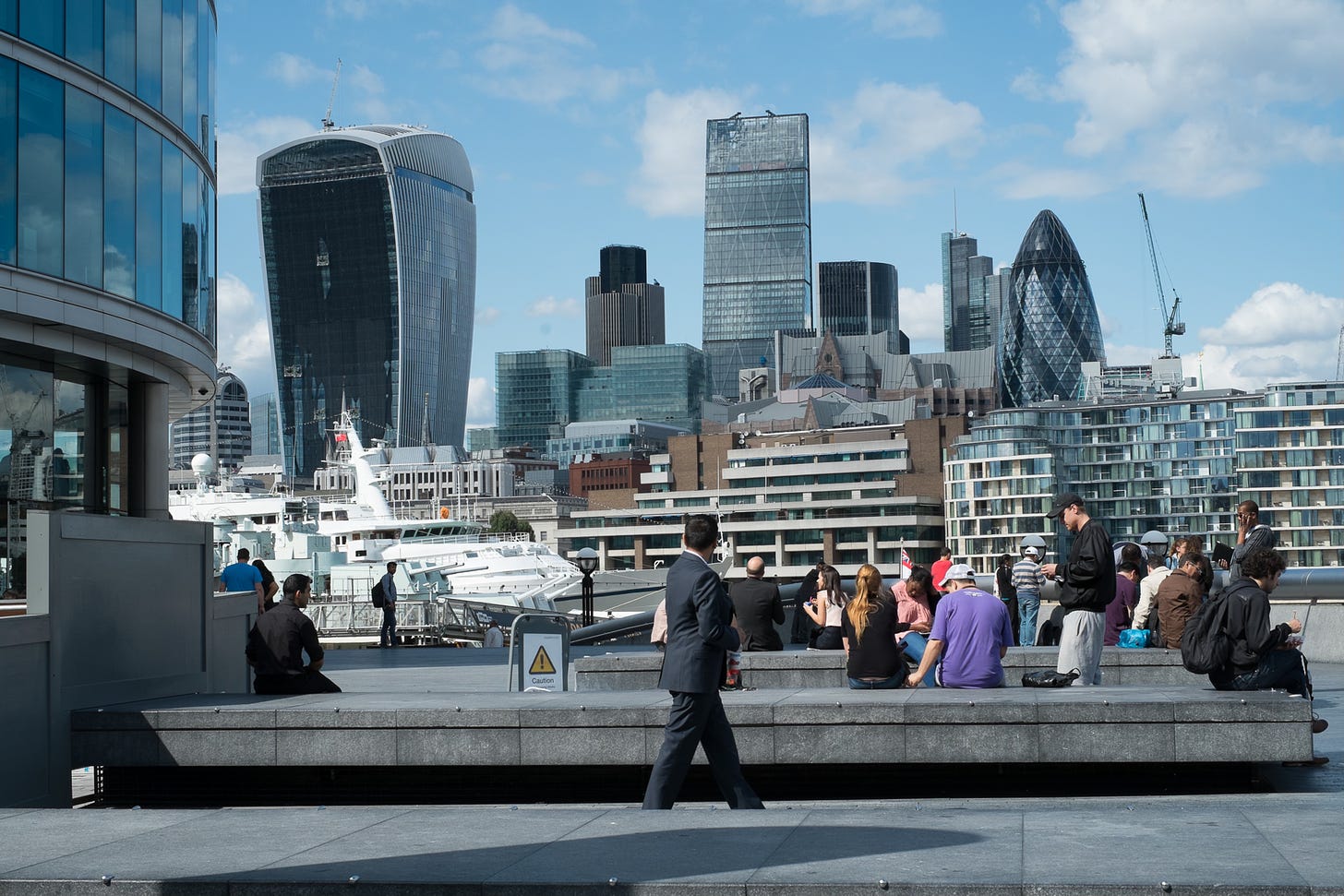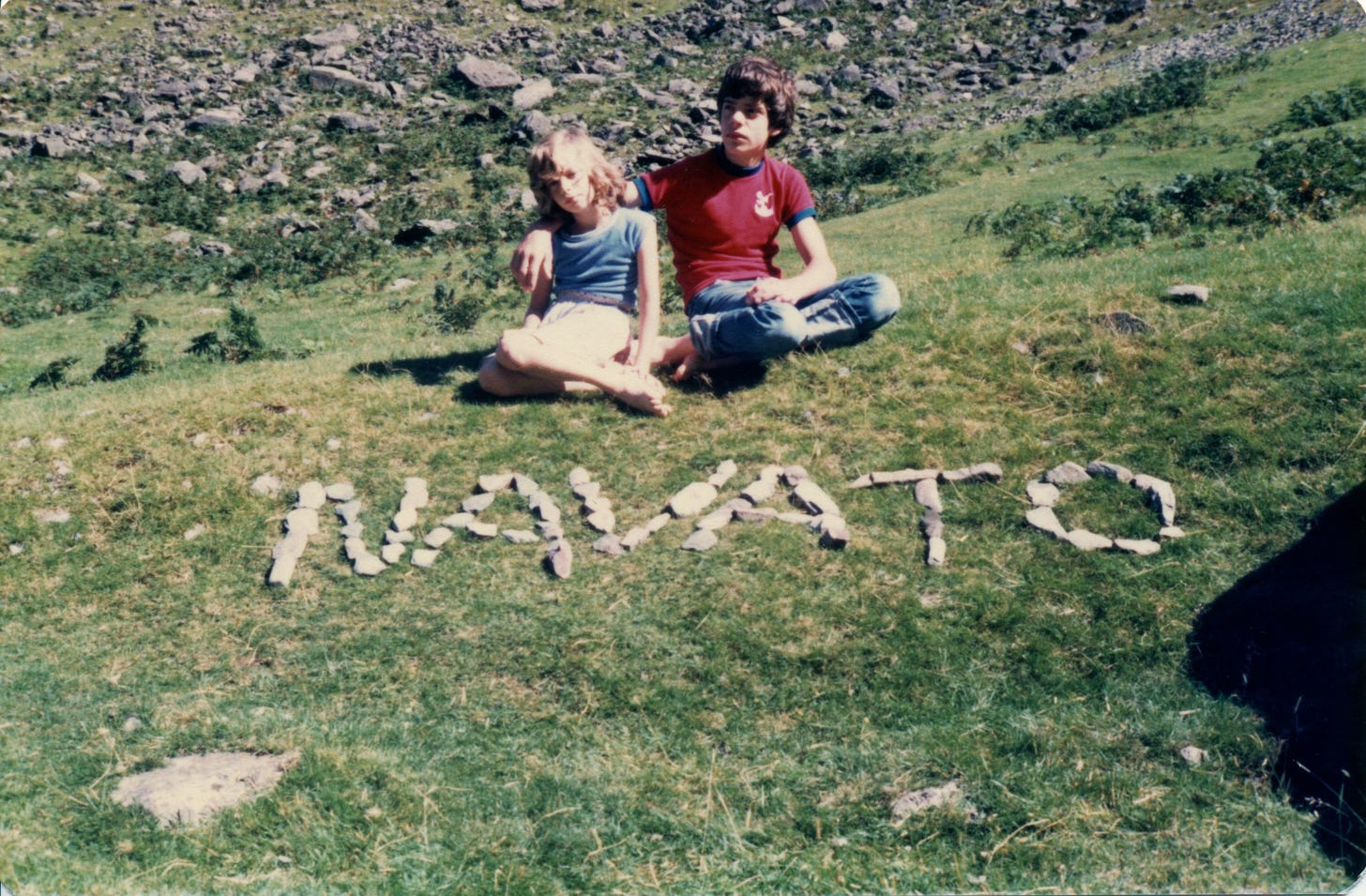Welcome to the last newsletter of the northern hemisphere summer.
Wild God
It’s not a secret that I’m a massive Nick Cave fan. Not only is he a creative genius across multiple art forms, but he is a man who has taken the deepest possible pain and utilised it to make the world so much more connected, and compassionate. Here’s a snippet of his response last month, to a teenage girl navigating a lost love:
“Ultimately, a broken heart or an obstructed love is proof of life, for there is nothing as wildly expansive as the yearning heart. It proclaims our existence as part of the universe. We hurt deeply because we love deeply. The dead heart, the dull heart, the cynical heart, the unimaginative heart, the unredeemed heart, resides outside the law of life, disconnected and unnatural, for we are creatures made to love, duty-bound to do so.”
His new Nick Cave and The Bad Seeds album, Wild God, is out today. It’s pretty incredible. He contemplated calling it Joy, which after the personal devastation he’s navigated over recent years, shows how far we have the potential to heal, with time.
The story of how the name Wild God made the cut is wonderful. You’ll find it here. And here’s the album.
Human Wisdom
Everything seems so intense in business and leadership at the moment. So many are feeling exhausted, isolated or unfulfilled, even when surrounded by capable teams. In the discussions I’m having with business leaders the question ‘what’s missing?’ is provoking a dazzling array of deeply meaningful answers.
There is so much being written about the generative AI revolution and how being ‘data driven’ is more important than ever. How more data, or more computing power will solve everything.
I see it differently. While data can help inform decision-making, it is by no means guaranteed to do so. A massive amount of the wrong data isn’t going to help anything. The paradox for me is that as data becomes more ubiquitous, we need ever better insights and consequently we need to be more people driven than ever before, not less.
The brilliant American biologist and polymath, Edward O. Wilson wrote about exactly this way back in 1998 in Consilience: The Unity of Knowledge:
“We are drowning in information, while starving for wisdom. The world henceforth will be run by synthesizers, people able to put together the right information at the right time, think critically about it, and make important choices wisely.”
Substitute data for information in this case and the inference is obvious. I’m totally with him. We need more wisdom, more human wisdom.
“Moderate becoming good later.”
When I was studying for a Yachmaster theory qualification donkeys years ago, I often drifted off to sleep listening to the UK Shipping Forecast on BBC Radio 4 longwave. It is one of the weirdest rituals I’ve had in my time, but strangely comforting. We were advised to learn all of the sea areas and the unique delivery of the weather forecast presentation. This was before the ubiquitous use of satellite navigation systems.
The forecast has a repeatable, utterly consistent, beautiful rhythmic quality. First the wind, then the sea state, then the weather, then the visibility. Every time, and for every one of the 31 sea areas from Viking through Dogger and Biscay and Fastnet all the way back to South-East Iceland.
Westerly veering northwesterly, 3 to 5. Moderate. Showers, perhaps thundery at first, becoming fair later. Moderate, becoming good later.
That last descriptive phrase, the one I would hear night after night for visibility, the one that has always stuck with me, was “moderate becoming good later.”
And here’s the thing. However hard it was learning sea areas, or navigation methods, or tides, buoyage or pilotage, that phrase would always give me comfort. My knowledge or ability now might be moderate, but it will be good later, if I just keep at it.
I was thinking about this earlier when yet another ‘this AI will change everything’ post landed in my timeline. I think it was promising me how I can learn everything I’ll ever need to improve my ‘content creation’ or something if I just download this software (I switched off about 11 words in to be honest so I’m not sure what the real promise was).
I don’t quite know why I don’t feel like the relentless march of large language model AI is a good thing, but I do know I think it’s making us all more stupid. Ironically the first thing Linkedin offered me as I sat down to type this, was the assistance of AI! No. No. No, thank you!
How will our knowledge improve, how will our decision making under uncertainty get better, how will our invaluable intuition sharpen, (and ultimately, therefore lead us to wisdom), if we outsource all our thinking so some generally odd blokes in San Francisco, get richer.
It seems to me that the act of learning, and what that itself does for us, is almost as important as the knowledge gained in learning.
Shitting Money
Creating a plan for a new impact focused business, and a broader impact investment platform, is bringing up some interesting stuff. Impact investment, and the move to an impact driven economy, must embed an approach that both acknowledges that financial return on money is one essential foundational element, but can’t be the only one. As we stand, the financial status quo has to change rapidly, and historically it’s moved at snails pace. Sorting through an increasingly Tower of Pisa like pile of pending filing recently I found something connected that made me chuckle. Here’s what the American Beat artist, William S. Burroughs had to say about money back in 1966:
“When a certain stage of responsibility and awareness has been reached by a young banker, he is taken to a room lined with family portraits in the middle of which is an ornate gilded toilet. Here he comes every day to defecate surrounded by the family portraits until he realizes that money is shit. And what does the money machine eat to shit it out? It eats youth, spontaneity, life, beauty and above all it eats creativity. It eats quality and shits out quantity. There was a time when the machine ate in moderation from a plentiful larder and what it ate was replaced. Now the machine is eating faster.”
The Job: Interviews with William S. Burroughs (1966) William Burroughs with Daniel Odier
You can always count on a great artist to cut to the chase and reveal what lies unseen but in plain sight. Almost 60 years after he said this, I’m not sure much has changed. And that’s one of the key reasons why the time is now for the dam walls to break on impact investment. In a world that desperately needs to see connection and collaboration and compassion become the drivers for everything, this is the way forward.
So, what is ‘impact investment?’ The widely accepted Global Impact Investing Network (GIIN) definition is: “Investments made with the intention to generate positive, measurable social and environmental impact alongside a financial return.” It’s time to formulate game changing approaches that allow the money machine to shit out not just more money, but more life, beauty, creativity and connection. It’s time to get to work.
Measurement
When I was starting out in the business world the mantra was all about measurement – ‘what gets measured gets managed’ That always seemed to me to be more than a bit limiting. I mean the stuff that makes us human, the really good stuff, can’t be measured anyway, right? How do you measure someone’s imagination, or their creativity, or their ability to be supportive or collaborative, or to be loving or soulful? And sadly, I’m not sure much has changed in the last 35 years.
I wonder if we forget that companies are just groups of humans. Sure there is technology and other stuff but I think we’re getting things the wrong way round. Rather than looking first at systems and processes, and data analysis and strategy and measuring things, what if we turned it all around and started with human possibility first? What if we start with all the things that make us an incredible species – our curiosity, imagination and creativity, and our need for connection and kinship and belonging? Once we’ve got a genuine understanding of that in the company, then measuring starts to be more meaningful.
If you run everything through a spreadsheet you might end up with a rational plan. But the problem is, however much data you have how good is it? How reliable? What is it based on? What questions were asked to generate it? What was the context? What does it mean? Even with best available data a rational plan based on logic isn’t what generates good energy, inspires action or creates magic and everlasting memories. And they matter.
We need to move on from a religious focus on data analysis to a religious focus on intuition and interpretation and insight. What drives us is what Viktor Frankl called ‘the will to meaning’ – that’s what we need to home in on and then businesses will really start to flourish in a way that matters, not just for shareholders but for everyone (the paradox is what might look questionable to shareholders in the first instance, is absolutely in their best interest in the long run).
My mate Az Chowdury always says I’m obsessed with dead Romans. I think he’s probably right. Here’s what Seneca said in a letter to his young friend Lucilius just under 2,000 years ago:
“Oh, the marvels of geometry! You geometers can calculate the areas of circles, can reduce any given shape to a square, can state the distances separating stars. Nothing's outside your scope when it comes to measurement. Well, if you're such an expert, measure a man's soul; tell me how large or how small that is. You can define a straight line; what use is that to you if you've no idea what straightness means in life?”
**************
That’s all for this month folks. I’m also posting a weekly creative offering over on my website if you fancy dropping in from time to time.
And thank you for your time and attention. In a world increasingly characterised by unsolicited attempts to capture our attention, and the distraction that goes with it, I will never take your interest for granted. So thank you.










Thank you Andrew, I appreciate you taking the time to feedback. Hopefully I can continue to provide something worth reading. Kind regards
Thank you for writing such a thoughtful piece. I find myself nodding a lot when I read your words.
... and 'Wild God' has been repeated played since Friday. I'm looking forward to seeing him and his Bad Seeds in Cardiff later this year.